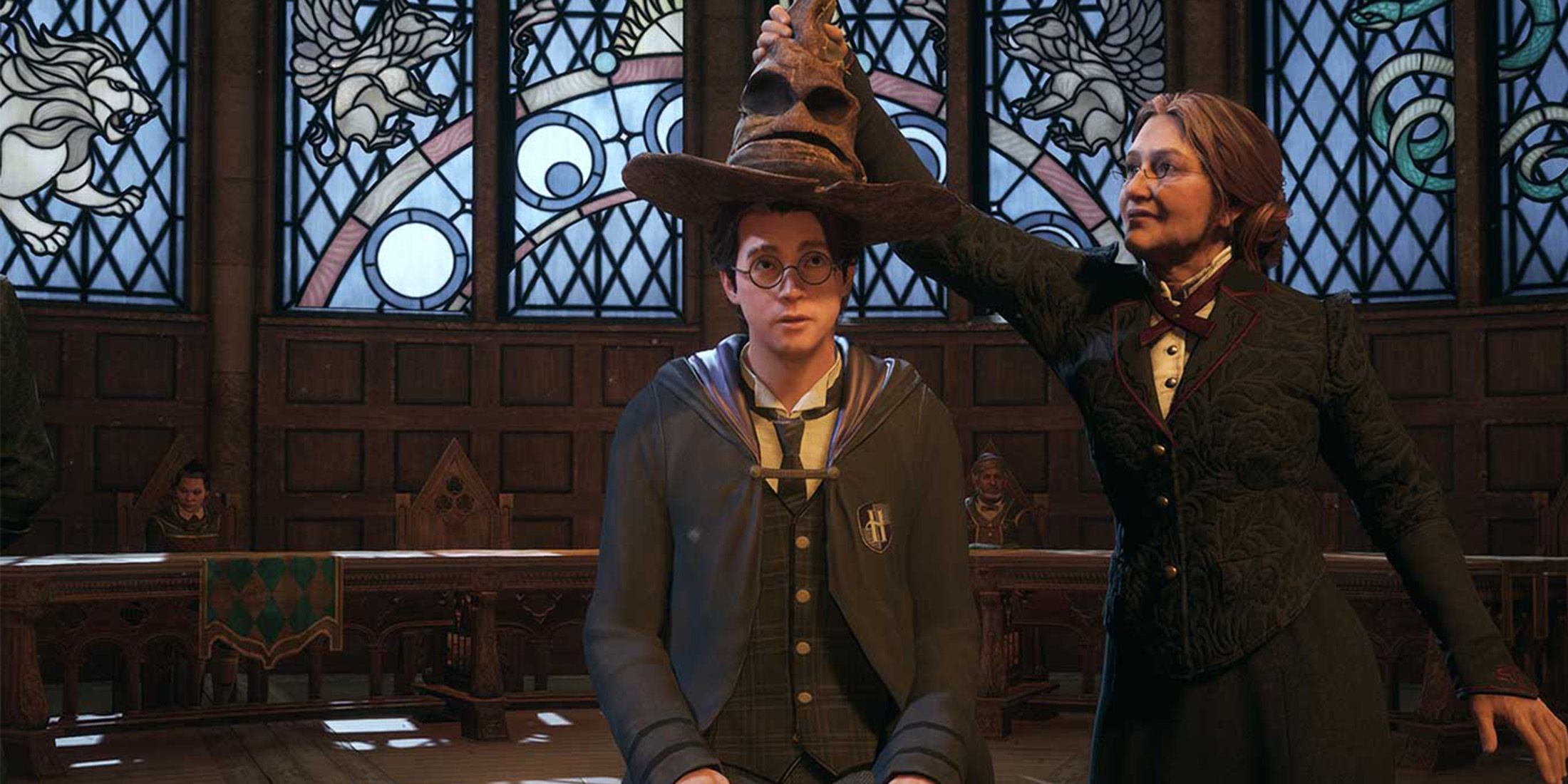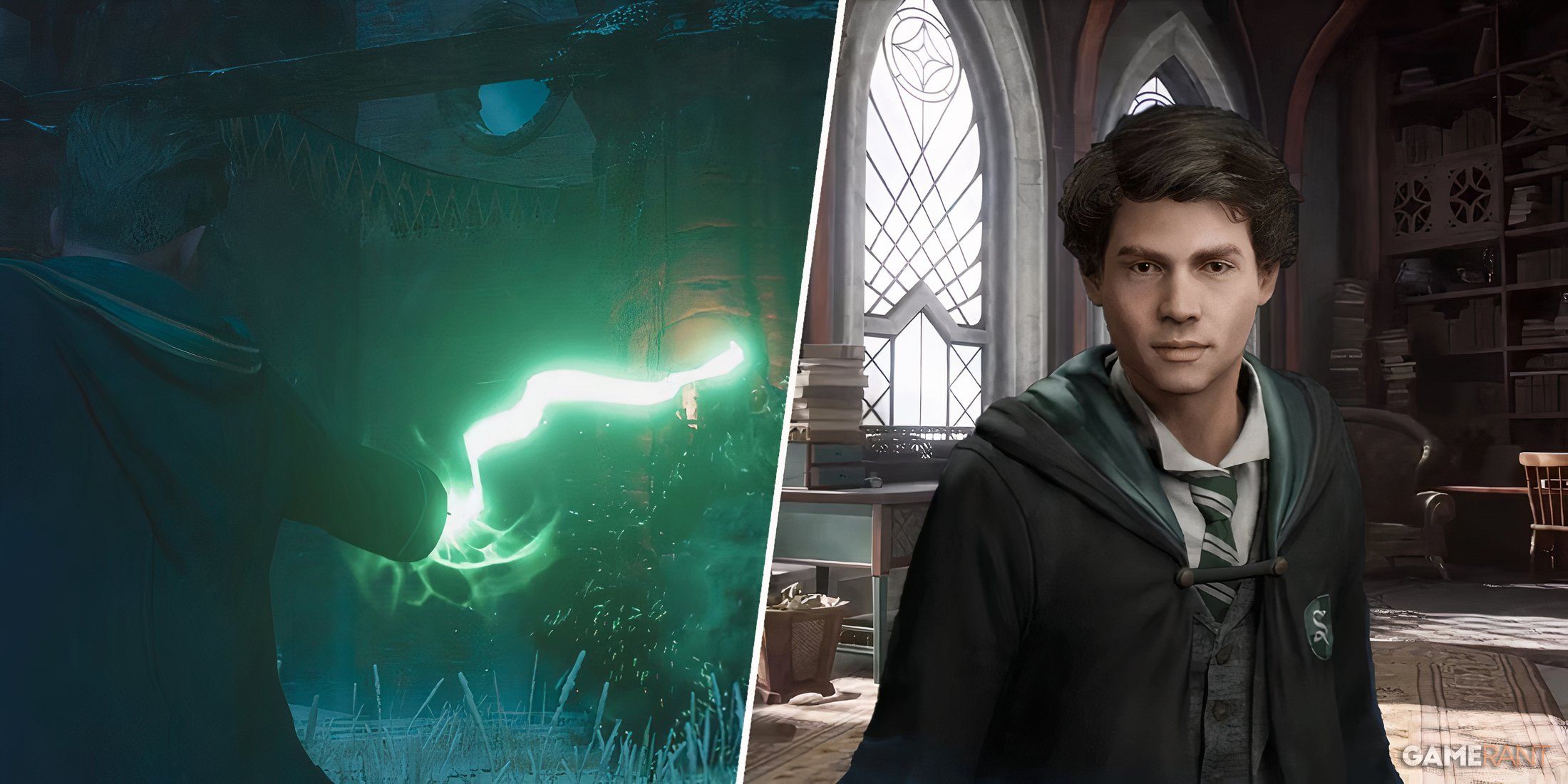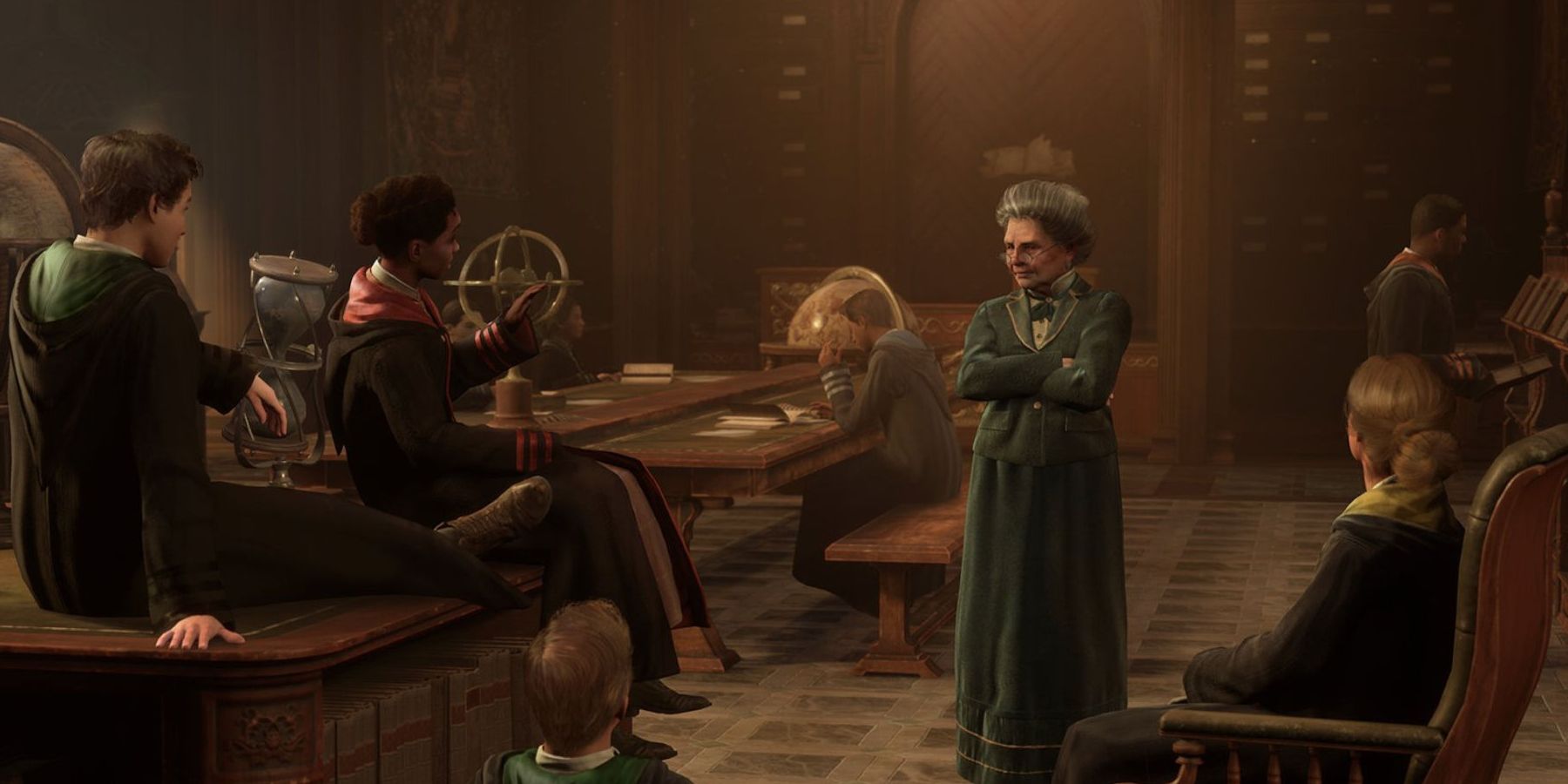Highlights
- Hogwarts Legacy received praise for its ambition and polish, but it suffers from a lack of identity and consistency.
- The game's dual focus on being both a Hogwarts simulator and an open-world RPG creates a disconnect between the student and adventurer experiences.
- The sequel should consider a more linear approach to its world, with immersive narrative reasons to explore, to improve immersion and minimize filler content.
This year's Hogwarts Legacy proved to be a massive success, but there is still plenty of room for improvement. While players have criticized Hogwarts Legacy for small oversights, tonal problems, and shallow RPG systems, fundamental issues about the game's identity as both a "Hogwarts simulator" and an open-world game may be the most significant.
Avalanche Software took a massive leap upwards with Hogwarts Legacy, with the project overshadowing all the company's other works in terms of ambition, polish, and budget. In many ways, Avalanche stuck the landing, offering a pleasant, worthwhile experience for fans of both Harry Potter and the open-world RPG genre. That said, the game suffers from a lack of identity and consistency, and much of this can be attributed to the awkward balancing act it performs while trying to capture the magic of its source material, while being an expansive, AAA RPG. If Avalanche wants to improve future games in the Hogwarts Legacy series, it would do well to address this balancing act.

Hogwarts Legacy is More Ripe for Half-Sequels Than Spider-Man, God of War
Half-sequels are quickly becoming all the rage, and while God of War and Spider-Man both have tons of potential, Hogwarts Legacy might have even more.
The Next Hogwarts Legacy Needs to Blend Its Disparate Parts
Hogwarts Legacy's Student-Explorer Problem
Hogwarts Legacy's world consists of two parts: the contained, dense halls of Hogwarts itself, and the rolling hills, forests, and cliffs of the Scottish Highlands. In theory, giving players access to both of these areas sounds great, as it seemingly offers the experience of Hogwarts student life and that of a swashbuckling, magical adventurer. In practice, however, this combo could have been pulled off a bit better.
The sense of immersion in Hogwarts Legacy is harmed by this dichotomy, as it's hard to reconcile the student side of the experience with the adventurer side. When it comes to the open-world, exploration can be difficult to engage with, since the player-character doesn't have much of an in-universe reason to visit many of the areas they do. Conversely, the in-game classes feel very tacked-on and perfunctory, only existing to teach the player a new spell or introduce them to a new mechanic. In several cases, the player will only visit these classes once, which is a shame. Since a major draw of Hogwarts Legacy is the fulfillment of the Hogwarts student fantasy, this is a significant issue that should be addressed.
Fixing Student and Explorer Life in the Hogwarts Legacy Sequel
There is plenty of potential in the Hogwarts Legacy sequel, but it can only succeed if it builds on the foundation laid by its predecessor, while smoothing some of its rougher edges. When it comes to integrating typical RPG exploration with the "day in the life" elements of Hogwarts, Avalanche should consider making a significant, fundamental change to the structure of the game.
Though the feature seems ubiquitous, most gaming fans would surely agree that an open-world is not a prerequisite for a good game. In many cases, forcing the open-world framework onto a game can actually harm the final product. Hogwarts Legacy is, arguably, an example of this. Though the open-world is beautifully designed, it simply isn't the main attraction of the game, which is evidenced by the fact that the Switch port of Hogwarts Legacy isn't even open-world, yet it is still managing to be a hit with players. If Hogwarts Legacy's sequel were to take a more linear, dense approach to its world, while giving players interesting narrative reasons to explore areas outside Hogwarts (with some areas being locked to specific quests, perhaps), it would greatly help immersion and minimize filler content.
Ultimately, when looking for reasons why Hogwarts Legacy struggles to balance its school and exploration elements, the open-world formula is the most likely culprit. A more curated, finely-tuned approach would arguably be a much better fit for the game's sequel, as it would allow Avalanche to design a more affecting experience, while highlighting and strengthening what makes Hogwarts Legacy unique.




